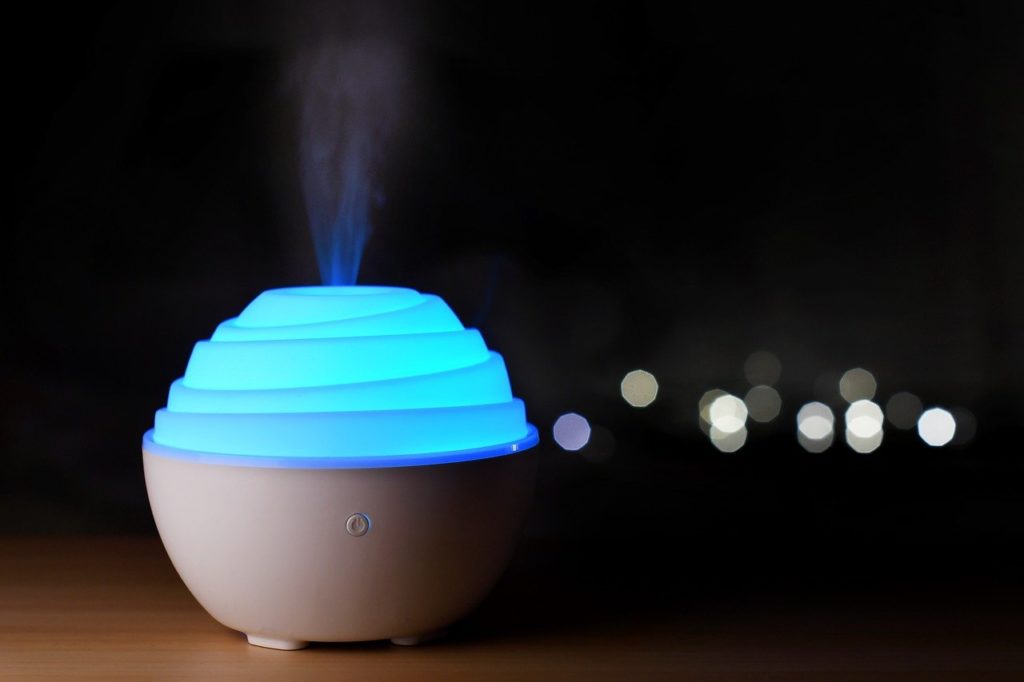Essential oil diffusers are a popular and attractive addition to any room. Brightening the mood through a pleasant look and calming aroma, a diffuser is a sought-after home décor piece. They’re everywhere now!
But are there hidden dangers lurking under the diffuser’s simplicity? At the very least, will your home’s smoke detector be triggered by the stream emitted by the diffuser? Do essential oil diffusers set off fire alarms?
Is there an inherent fire safety risk in using a diffuser?
In this article, we’ll look at oil diffusers and fire alarms.
Essential oil diffusers can be purchased in two basic types:
- Most common in home spaces: ultrasonic diffuser
- For odor treatment in unoccupied rooms: ionizing diffuser
Do Essential Oil Diffusers Set Off Fire Alarms?
While there are two types of oil diffusers, there are also two types of smoke detectors/fire alarms. The interaction between oil diffuser emissions and either type of fire alarm is the same — there is no effect.
This is one of the big advantages of oil diffusers over incense sticks.
You can rest assured knowing that diffusers will not set off fire alarms in your home or in other rooms where you might want to use an essential oil diffuser for aromatherapy and room ambiance.
For a deeper understanding, we will describe the two smoke alarm varieties and their relative characteristics, so you can compare your home’s fire detectors to the types mentioned in this article:
- Most common in home settings: ionization smoke alarms
- More expensive units often used in institutional settings: photoelectric smoke alarms
Both types of smoke detectors are triggered by smoke particles in the air, specifically when smoke enters the analysis chamber of the unit. However, it is important to understand that essential oil diffusers do not emit smoke and, therefore, will not trigger either style of smoke detector.
Essential oil diffusers emit a stream of mist or vapor (not smoke or heat) and not steam, though the mist’s appearance is easily confused with steam.
Diffusers are based on a principle of cool air vapor circulation transporting essential oils (and the desired aroma) throughout the room.
Types of Diffusers
The operational methods of the two types of essential oil diffusers (ultrasonic and ionizing) are different. However, the end result is the same….there is no risk of setting off smoke detectors through their use.
Ultrasonic diffusers have an electrical source that causes a base plate to vibrate at a high frequency. The essential oil suspended in the water above the metal plate is broken down into base molecules, with negatively charged oil molecules exiting the diffuser in a stream of water vapor. Often, ultrasonic diffusers come with an automatic shut-off switch for when the water reservoir runs dry.
Ionizing diffusers emit charged molecules into the air and are used for intensive industrial odor treatment purposes, including institutional cleaning. Ionizing streams are also a vapor mist. Due to their concentration, they can cause respiratory complications and should only be employed in unoccupied rooms.
Are Essential Oil Diffusers a Fire Hazard?
The two types of diffusers already described (ultrasonic and ionizing) can not cause a fire hazard, as there is no open flame use in their operations, and their design does not offer the possibility of self-combustion.
However, essential oil diffusers are also sold in fire-based versions, which involve an open flame under a ceramic essential oil holding bowl. Of course, when open flame and flammable materials (the oils themselves are flammable) are combined, there is a fire risk.
Can a Diffuser Start a Fire?
Essential oil diffusers can not trigger a smoke alarm nor start a fire, but the essential oils themselves are considered highly flammable and should be handled accordingly.
Essential oils are distilled plant extracts that are combined with a carrier oil (for the purposes of ease of use and dilution). The flashpoint (ignition threshold) of some essential oils indicates that it is wise to store the oils in a cool, dark place (auto-ignition is possible in glass containers improperly sealed and receiving sunlight).
Care should also be used when disposing of rags and other materials used to clean up essential oil spillage, as there could be a risk of auto-ignition during the waste disposal process.
Remember that any ceramic diffuser with an open flame heating source or any incense-burning style of room aroma enhancement poses a potential fire risk.
Enjoy your essential oil diffuser’s health and wellness benefits in the comfort of your living spaces with peace of mind. The question of essential oil diffusers setting off smoke alarms is firmly settled, and you can appreciate the pleasant effects of your diffuser without concern.
See also:





